Navigation
Install the app
How to install the app on iOS
Follow along with the video below to see how to install our site as a web app on your home screen.
Note: This feature may not be available in some browsers.
More options
You are using an out of date browser. It may not display this or other websites correctly.
You should upgrade or use an alternative browser.
You should upgrade or use an alternative browser.
-
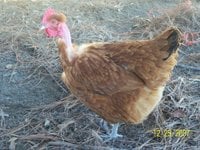 0cac7622_naked_neck-turken-32512-27872.jpeg113.3 KB · Views: 2,825
0cac7622_naked_neck-turken-32512-27872.jpeg113.3 KB · Views: 2,825 -
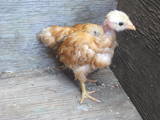 b00b7716_naked_neck-turken-32512-614255.jpeg3.9 KB · Views: 2,454
b00b7716_naked_neck-turken-32512-614255.jpeg3.9 KB · Views: 2,454 -
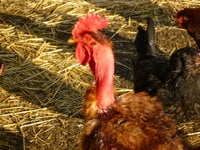 b0ddd89d_P1030577.jpeg5.6 MB · Views: 2,603
b0ddd89d_P1030577.jpeg5.6 MB · Views: 2,603 -
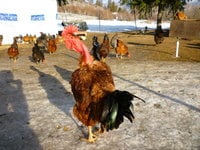 b66b6bd3_P1030602.jpeg5.8 MB · Views: 2,511
b66b6bd3_P1030602.jpeg5.8 MB · Views: 2,511 -
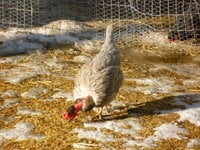 56de8f59_P1030607.jpeg6.1 MB · Views: 2,617
56de8f59_P1030607.jpeg6.1 MB · Views: 2,617 -
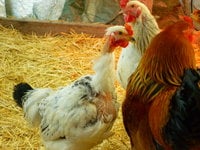 a97839d3_P1030613.jpeg5.7 MB · Views: 2,589
a97839d3_P1030613.jpeg5.7 MB · Views: 2,589 -
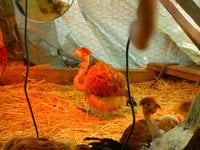 8d4746f0_P1030627.jpeg5.9 MB · Views: 2,553
8d4746f0_P1030627.jpeg5.9 MB · Views: 2,553 -
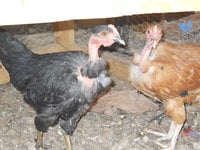 a4488b2d_BushiPelonas.jpeg3.4 MB · Views: 2,530
a4488b2d_BushiPelonas.jpeg3.4 MB · Views: 2,530 -
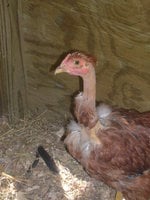 e26a025e_DSCN2377-Copy.jpeg783 KB · Views: 2,405
e26a025e_DSCN2377-Copy.jpeg783 KB · Views: 2,405 -
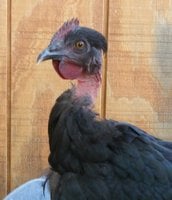 7e641bb2_900x900px-LL-baeef60c_DSCF2271-2.jpeg37 KB · Views: 2,578
7e641bb2_900x900px-LL-baeef60c_DSCF2271-2.jpeg37 KB · Views: 2,578 -
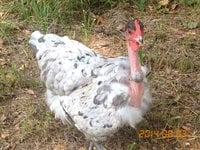 6781fc61_get-attachment-1.aspx.jpeg2.3 MB · Views: 2,405
6781fc61_get-attachment-1.aspx.jpeg2.3 MB · Views: 2,405 -
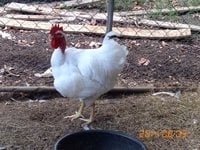 9a6849f4_get-attachment.aspx.jpeg1.7 MB · Views: 2,583
9a6849f4_get-attachment.aspx.jpeg1.7 MB · Views: 2,583 -
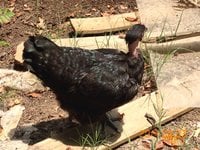 ece47e6f_get-attachment-3.aspx.jpeg1.8 MB · Views: 2,507
ece47e6f_get-attachment-3.aspx.jpeg1.8 MB · Views: 2,507 -
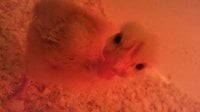 64e703b6_00u0u_2TYWrUHqC6p_600x450.jpeg12.8 KB · Views: 2,517
64e703b6_00u0u_2TYWrUHqC6p_600x450.jpeg12.8 KB · Views: 2,517 -
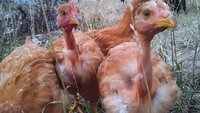 1c2d19a3_10556429_720385451341250_2018249023517967294_n-2.jpeg86.5 KB · Views: 2,362
1c2d19a3_10556429_720385451341250_2018249023517967294_n-2.jpeg86.5 KB · Views: 2,362 -
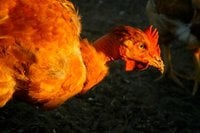 7fdf2280_00E0E_7OWj9OSctea_600x450.jpeg26.2 KB · Views: 2,567
7fdf2280_00E0E_7OWj9OSctea_600x450.jpeg26.2 KB · Views: 2,567 -
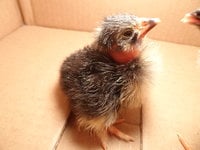 a7e013a1_SAM_1791.jpeg2.9 MB · Views: 2,530
a7e013a1_SAM_1791.jpeg2.9 MB · Views: 2,530 -
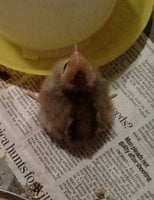 8ef3ea21_IMG_20160618_234839.jpeg624.7 KB · Views: 2,458
8ef3ea21_IMG_20160618_234839.jpeg624.7 KB · Views: 2,458 -
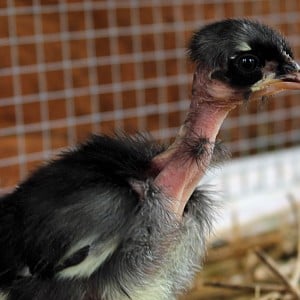 chick.jpg115.6 KB · Views: 3,661
chick.jpg115.6 KB · Views: 3,661
Naked Neck-turken
- Added by Super Admin
- Create date
- Updated
The origination of the Naked Neck is unclear but they are thought to have been brought back by...
- Fluffy_Moth_With_Silkies
- 3.00 star(s)
Pros: Silly looking
Pretty nice
Good climate tolerance
Pretty nice
Good climate tolerance
Cons: Gets cold a bit faster
Not very good layers
Not very good layers
I like turkens, mostly because they helped make showgirl silkies. They're also pretty nice but can go a bit crazy. Not great layers but are still great birds! I wouldn't suggest them for a beginner flock though.
- cowgirlaug39
- 5.00 star(s)
Pros: Smart, lays large eggs
Cons: None besides mine are to smart! They are the only ones to escape there coop!
Very smart chickens! Lay pretty well, beautiful eggs! Friendly also! Love to free range!
- ForrestGump
- 5.00 star(s)
Pros: Hardy, good layers, big birds, good for meat production, very vigorous, entertaining
Cons: Can be aggressive towards other birds.
My first naked neck arrived by accident via hatching eggs I bought. Since then I've been breeding and crossing NN chickens for several years. They are great layers, good for meat production, excellent in all types of weather from hot and humid to cold and windy. They can be crossed with other breeds to produce different characteristics. My flock consists of green, blue and olive egg laying NNs that have Ameraucana and legbar parentage. I also have a line of Black copper Marans naked necks that lay chocolate brown eggs.
My oldest hens are three years old and still laying strong. Because they are so large and rugged, they can tend to pick on other chickens, especially if they are in a flock with several of their NN sisters.
Overall they are friendly and curious birds. They are experts at free ranging. I'm not sure how they would do confined to a small coop. Mine prefer to be out all day in the yard or in the run.





My oldest hens are three years old and still laying strong. Because they are so large and rugged, they can tend to pick on other chickens, especially if they are in a flock with several of their NN sisters.
Overall they are friendly and curious birds. They are experts at free ranging. I'm not sure how they would do confined to a small coop. Mine prefer to be out all day in the yard or in the run.
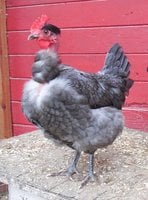

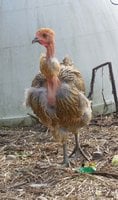
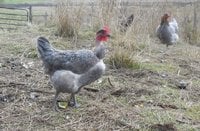
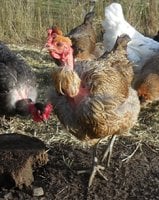
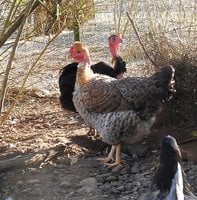
- Purchase Price
- $1
- Purchase Date
- July 2014
- ChickenGirl555
- 3.00 star(s)
Pros: Very cold tolerant
Cons: Was very scared of people and flock mates. Didn't do well with chickens that were older than it.
I had a Turken cockerel and he was the sweetest thing. I got him and a faverolle mix as chicks. I introduced them to my flock of 6 pullets once they were fully feathered, and even when the lead pullet was nice to him (and his faverolle sister), he hated it.
Also, no matter how many hours I put in to patiently waiting, sitting, with a handful of food or mealworms, he would not come to me. He just wanted to be alone with his sister all the time. (Except for when he matured and mated with everybody! )
)
But then again, he came from a rough life as a chick. He was poked and prodded. So I'm giving 3 stars for my experience. And I bet if he wasn't so beat up as a chick, he would be amazing. (Also even if he was sweet, he was a boy and we didn't want a turken boy. But if he was sweeter, we may have kept him as our flock rooster.)
Also, no matter how many hours I put in to patiently waiting, sitting, with a handful of food or mealworms, he would not come to me. He just wanted to be alone with his sister all the time. (Except for when he matured and mated with everybody!
 )
)But then again, he came from a rough life as a chick. He was poked and prodded. So I'm giving 3 stars for my experience. And I bet if he wasn't so beat up as a chick, he would be amazing. (Also even if he was sweet, he was a boy and we didn't want a turken boy. But if he was sweeter, we may have kept him as our flock rooster.)
- ThenNotSoChickenMaster
- 4.00 star(s)
Pros: Great for any climate, both cold and hot. They are the perfect chickens for almost anyone! They can be raised for both eggs and meat.
Cons: They eat alot!
Don't underestimate the messing feathers from their neck. They can withstand the bitter winters of negative digits (Fahrenheit) and surpass the hot intense summer heat of 100F+. They lay fairly well, about 4-6 eggs a week, and can be raised for meat.
The only thing I dislike of this breed is they eat alot!!
The only thing I dislike of this breed is they eat alot!!
- Bluechick2u
- 5.00 star(s)
Pros: egg laying machines even below freezing, cold and heat tolerant, very friendly yet self sufficient
Cons: None observed
These are the best chickens I've ever had, laid eggs all winter when no other breeds were laying, they keept the feed store supplied with eggs all by themselves, they had to be forced to go into the coop in below zero temps as they still wanted to hang out in the snow with their necks tucked under their feathers, and in heat they just extend their naked neck out and cool down. They are like little feathered dogs, very happy to sweetly follow you around or come see what treats you have for them. Roosters have alot of personality and are very protective of the hens, don't seem to run the hens ragged with breeding but still cover them nicely. If I had to choose only 1 breed, this would be it hands down.
- DesertChic
- 5.00 star(s)
Pros: Outstanding meat and egg production all year round; fun & friendly personalities; exceptionally hardy and healthy.
Cons: I haven't found any.
If ever I had to restrict myself to a single breed to meat all of my meat, egg and "chicken therapy" needs, this would be the one. Not only are my NNs prolific layers of large to jumbo sized eggs all year round, but they also provide the most delicious meat and are far easier and faster to process than other breeds. They're wonderfully intelligent and feed efficient birds with an abundance of personality. And when it comes to health and hardiness, this breed cannot be beat. Our excessive Arizona summers barely faze them, and while our winters don't get exceptionally cold like other parts of the country do, my NNs have handled freezing temperatures with no signs of discomfort or distress.
The chicks are amazingly hardy and feather out much more quickly than most other fully feathered breeds. Many of my chicks begin roosting on the edge of the brooder by 1 1/2 weeks and are very smart and active. Like most other breeds, however, they still go through an awkward, flighty stage beginning around 3 weeks and lasting until roughly 6 weeks of age. After that they become surprisingly friendly and confident.
Most of my roosters are friendly without being particularly affectionate with the exception of one boy who anxiously waits for me to come outside and sit down so he can jump up on my lap to be pet, but the minute he thinks something may be threatening his girls he's off at a run to protect them. My roosters have also become very adept at distinguishing annoyances like crows from predatory hawks and sound the alarm loud and clear and herd the hens to safety. All of my roosters (I've hatched nearly 3 dozen of them now) have been amazingly attentive to their hens and I've only ever had one rooster that was aggressive. (He was delicious roasted in wine.)
All of my hens have been exceptionally sweet and friendly and it's not uncommon for them to perch on my lap, sometimes several at once, to be pet or just spend time with me. During a bad week I may only get 4 large eggs from one of my hens, but that's a rare occurrence with the majority of my girls giving me 6 huge eggs per week. In fact, my best laying NN only took a break from laying when she molted so heavily as to be completely bald and needed to grow the feathers back. She took 3 weeks off and went right back to giving me jumbo-sized green eggs six days per week, and she's 2 years old.
As you can see from the photo of one of my roosters, you can create amazing color and feather patterns by crossing various breeds with "pure" Naked Neck Turkens. I personally keep three separate lines of NNs. One is my pure line of NNs that I'm working at reaching APA standard with. These birds, so far, tend to run fairly small, but have proven to be exceptionally feed efficient and the little hens lay amazingly large eggs for their size, averaging 5-6 per week each. Although their bodies are smaller than my crosses, their builds have all be very compact and meaty, both hens and roosters alike.
My second line is comprised of my "meat bird" project and I'm working at increasing mass and musculature along with more rapid growth for earlier processing. So far my best hen has weighed in at nearly 8 lbs and my best rooster just over 10. In spite of their larger, meatier bodies, my "meat NN hens" are still giving me just as many large+ eggs per week as my pure line.
And finally my third line, which is a combination of my best egg layers and prettiest feathered birds. This is my "fun" group comprised of NN hybrids to give me both pretty plumage and an abundance of colored eggs, including blue, green, olive green, every shade of tan through brown, and pink. This group also tends to contain some of my broodier hens.
Turkens really are an exceptional breed and I highly recommend that every family farm and homestead have at least a few.

All4Eggz
Wow! Love how it looks like they have a little hair-do 

- draye
- 4.00 star(s)
Pros: Very heat and cold tolerant.
Cons: Roosters tend to be a little aggressive.
I have switched all my flock to Naked Necks aka Turkens. They have proven themselves to be heat and cold tolerant. I have crossed them with Easter Egger chickens to create a Green Egg Laying Naked Neck. The offspring of this cross tend to have even less feathering on the breast and vent areas than Naked Necks themselves.
I have other projects with the Naked Necks going also. A Mottled Partridge line and a Calico line. The Calico line has the influence of the Aloha chickens, see here: https://www.backyardchickens.com/t/600281/the-aloha-chicken-project.
Overall I rate these as the best layers I've owned or bred.
APA approved color varities: Black, Buff, Red, and White.
I have other projects with the Naked Necks going also. A Mottled Partridge line and a Calico line. The Calico line has the influence of the Aloha chickens, see here: https://www.backyardchickens.com/t/600281/the-aloha-chicken-project.
Overall I rate these as the best layers I've owned or bred.
APA approved color varities: Black, Buff, Red, and White.
- nikkers390
- 5.00 star(s)
Pros: Disease resistant, hardy, sweet temperament, colorful, great layer of large eggs, attention getters, good size, good broody and moms
Cons: Silly people who can't think out of the box
Of all my chickens, naked necks are by far my favorites. They are naturally friendly and "talkative". Mine like to jump in my lap and talk about their day. Mine fight over who will brood the eggs and are attentive mothers. I have never had a sick naked neck, even when other breeds were fighting one ailment or another. They heal very quicly. I can't say enough good things about them. I even find them beautiful.
- mendocinobirds
- 5.00 star(s)
Pros: Great personalities, great taste, good layers
Cons: Not strong winter layers
I have done a ton of research into the history and genetics of Naked Necks. Check it out here:
https://antifragilechicken.wordpres...ave-history-more-enthralling-than-the-legend/
https://antifragilechicken.wordpres...ave-history-more-enthralling-than-the-legend/
- nevergiveup
- 5.00 star(s)
Pros: healthy, hearty, dual purpose, 300 + eggs/chicken/year, excellent double breasted meat
Cons: other people think they are ugly
I love my Naked Neck crosses. Other people think they are ugly but that just makes me love them even more !! We have 8 girls and one boy. The other 3 boys were delicious and soo big. About 5 kgs each. I want to be able to breed them myself and am a complete beginner as of last summer so am learning, but I think they are very healthy, curious, intelligent and so much fun. They have survived a 45 celsius plus summer and a minus 12 celsius winter without too much bother. When I read up on the Naked Neck breed most said that I shouldn't expect more than 150 eggs per bird per year from them. The breeder I bought them from boasted 250 plus per bird per year. I am feeding mine fermented feed which might be making the difference, but they are laying 300 plus per bird per year. Fantastic... we have too many eggs ! The meat is tasty and there is alot of it AND these birds are double breasted. All around a great dual purpose meat and egg bird.
- Jrose
- 5.00 star(s)
Pros: Trusting, Docile, Affectionate, Animated, Curious, Great Foragers, Hardy, Big, Intelligent
Cons: Escape Artists, Neck is Vulnerable
My birds are too smart for their own good and have a knack for squeezing through extremely small gaps (often resulting in torn delicate neck skin). I had to stitch one up this summer, he tore his neck so badly! At 3 months old the chicks would squeeze through 2" galvanized wire fencing and chainlink, and attempt to get through any gap they could find. This is the only draw back I can think of.
Otherwise, I'm in love with the breed. Talk about smart! They actually recognize certain words! I swear I could get them to preform tricks if I put the energy into it.
They are very friendly and love piling in my lap, perching on my shoulders, snuggling into my armpits and snoozing.
They don't seem to have much fear; they're very bold and inquisitive. They perch on the dog and ride her around and cuddle with the cats.
They are hands down the best foragers I have.
They grew faster physically than my other breeds but matured slower sexually. I haven't butchered any (don't have the heart!) but they'd be awesome meat birds.
I've had no fighting or serious aggression between the males and no crowing.
I think I'm going to pursue experimental breeding with them and see where it takes me! Love em! <3
Otherwise, I'm in love with the breed. Talk about smart! They actually recognize certain words! I swear I could get them to preform tricks if I put the energy into it.
They are very friendly and love piling in my lap, perching on my shoulders, snuggling into my armpits and snoozing.
They don't seem to have much fear; they're very bold and inquisitive. They perch on the dog and ride her around and cuddle with the cats.
They are hands down the best foragers I have.
They grew faster physically than my other breeds but matured slower sexually. I haven't butchered any (don't have the heart!) but they'd be awesome meat birds.
I've had no fighting or serious aggression between the males and no crowing.
I think I'm going to pursue experimental breeding with them and see where it takes me! Love em! <3
- jgoldy2
- 5.00 star(s)
Pros: Rooster's Favorite, good layers
Cons: A bit freaky and not the best in the cold
This breed is a rooster's favorite, they also lay great brown eggs often even a 7 months old my one turken is laying better than my 2 three year-old brown leghorns, the only bad part is that they are a bit freaky, they can be different colors wich I think is cool, however they aren't the best in the cold so I recomend that you knit scarfs for your chickens however that makes them look cute with scarfs. In conclusion I think that they are a great breed and am happy to have 9 of my chickens out of 24 be Naked Necks or Turkens.
- Oldmomma
- 4.00 star(s)
Pros: Attention getters for sure, theyre my first 4 chicks so waiting to see if they meet expectations.
Cons: None so far, they are blending in fine with 11 other chicks.
I picked up my first turkens last week at the farmers market. In 3 cardboard boxes he had a jumble of chicks. I saw these and knew right away what they were. I looked at wing feathers and im hoping since they were all less than 1 wk that I have two of each sex. Photos in my album. So excited since these birds are made for my regions hot climate. Here unless you can tell a bird by looks your outta luck on finding out breeds. So this is my only sure thing birds. I want eggs and meat so they should live up to my demands. I paid 17 dinars for 10 chicks with exchange rates about .75 cents each. Most chicks go for 2.50 each in dinars. The man didnt even know what they were.
- Purchase Price
- 0.75
- Purchase Date
- 2014-04-10
- JDMchickens
- 4.00 star(s)
Pros: Good, frequent eggs
Cons: Very scared
I got two pure black naked neck hens of a a friend along with a bluebelle mix hen. They were only 13 weeks old when I got them and were very scared. they are now 5 months old and are still very scared. I don't why but but apparently they didn't have a very interactive childhood.
The naked necks are beautiful to have in the garden as they never leave one another's side, even when laying and going broody. My two naked necks take in turns to sit on the eggs while they are brooding, quite strange I know.
Overall they are a good breed, just make sure they've had a good upbringing.
The naked necks are beautiful to have in the garden as they never leave one another's side, even when laying and going broody. My two naked necks take in turns to sit on the eggs while they are brooding, quite strange I know.
Overall they are a good breed, just make sure they've had a good upbringing.
- ItsWolfeh
- 5.00 star(s)
Pros: Delicious broilers, good layers of large eggs, very friendly, heat tolerant, rule the roost
Cons: Not cold tolerant
These chickens are big, bad, and delicious! We bought two from our local hatchery and unfortunately slaughtered the rooster, though he was incredibly delicious, our hatchery is having problems getting more in this year! He had a generous amount of meat on him, it was juicy and flavorful, and I could even see the oil from the fat bubbling under the skin which made the skin so crispy and delicious, like fried chicken without the oil and deep fryer! The hen we are keeping as a pet and have named Oprah because before she goes to kick another hen's butt, she weaves her head back and fourth like an angry black woman, and Oprah is our favorite black woman. My friends have asked me if she has a book club, I say I think she does, why else would the hens love her so much? We had to bring her in for the winter which really upsetted the other hens, they stopped laying completely (we thought it was the cold of winter until we put her back out and they started laying again), but she just wasn't looking happy or healthy out in that cold. Once she settled in inside, to our amazement, she started laying again! When she was put back outside, our two Welsummers who were ruling the roost in her absence, tried to dominate her. She turned around, grabbed the nearest Welsummer's hackles and scratched her on the back with her foot, they went running off while boking and that was the end of that. They didn't try it again, lol.
She's very curious and friendly, she follows me around and doesn't run from me at all, she even lets me pick her up though she makes sounds about it (which roughly translate to "Omg I'm being abducted" I'm sure). She's also quite the tank, she feels like a good 12 lbs, which is how much my shih tzu x amer. cocker mixes weigh. Their legs also amaze me, they are thick and giant!
She lays large- though large in length than width, still large- light brown eggs. We've even gotten quite a few double yolked from her, which may be bad for anyone incubating or hatching chicks, but we enjoy them for eating!
She's very curious and friendly, she follows me around and doesn't run from me at all, she even lets me pick her up though she makes sounds about it (which roughly translate to "Omg I'm being abducted" I'm sure). She's also quite the tank, she feels like a good 12 lbs, which is how much my shih tzu x amer. cocker mixes weigh. Their legs also amaze me, they are thick and giant!
She lays large- though large in length than width, still large- light brown eggs. We've even gotten quite a few double yolked from her, which may be bad for anyone incubating or hatching chicks, but we enjoy them for eating!
- masschickvet
- 5.00 star(s)
Pros: Easy to pick out of a flock
Cons: Won't this bird need a turtle neck come winter?
This breed is described as "cold hearty" but I can't believe her crop contents won't freeze come a NE winter. We'll see. I can knit a neck tube thing if need be. I am excited that they get such great reviews for personality and egg-laying, because I don't think anyone is going to buy this one out of my McMurray "Assorted Brown layers" batch that arrived yesterday, of which I plan to sell the majority.
- theuglyduckling
- 5.00 star(s)
Pros: friendly
Cons: none yet.
i only have 7 chicks so far, but so far they are friendly and i love these chickens. i never had them before and i hope they are good layers.
- clfehler
- 4.00 star(s)
Pros: Docile, good layers
Cons: Ugly
These are the best layers in my flock, and have the best personality as well!
- settingdusk
- 5.00 star(s)
Pros: They recover from injury and sickness very quickly. Great in droughts. Easy to pluck. NN gene is dominant. Tasty meat, huge eggs.
Cons: I don't have enough of them. They take about an extra month to grow for meat compared to other birds because they tend to be bigger.
These are the most delicious birds ever. I read that they were bred in world war I by countries in Europe to improve the amount of eggs/meat of chickens. The breed was almost wiped out in world war II as the chickens were killed to feed soldiers. They lay huge brown eggs. I recently got a straight run of them but it looks like I mostly have cockerels. Take a look here for the wonderful history of the naked neck! http://breedsavers.blogspot.com/2011/05/naked-necks-chickens-that-looks-like.html
×
